
Year in review: The water warrior
“Watch this space” … Paying for ghost kids … And the performance of a lifetime.
Earlier this year, Arizona author Tom Zoellner tried to warn the Democratic Party about its habit of ghosting rural Arizona.
“Democrats neglect rural America, but the problem is especially bad in Arizona,” Zoellner wrote. “Stop lecturing blue-collar voters about their perceived sins and start listening to their issues... Democrats stuck in their Valley bubble can blame themselves for failing to grasp their own state’s dynamics and ignoring the people who most needed to feel heard.”
Attorney General Kris Mayes clearly doesn’t need that lecture.
A native of rural Arizona and a former Republican, Mayes has been establishing herself as both an ear and sword for rural communities when their Republican representatives are nowhere to be found.
Mayes flexed her muscle again late last year when she effectively scared off the developers of a new mine in Chino Valley. Her strategy? A town hall, some old-fashioned listening, and a not-so-subtle threat of “public nuisance” lawsuits.
She’s been taking those same moves into a legal brawl with Arizona’s two most infamous megafarms — Saudi-owned Fondomonte in La Paz County and Minnesota-based Riverview in Cochise County — which are enjoying unlimited quantities of Arizona groundwater to grow feed for their dairy cows.
"I'm appalled at the lack of action by the state. … All we want is to live a quiet life and have water," Cochise County resident Traci Page shared at a February town hall hosted by Mayes.
Last month, Mayes used her favorite catchphrase for announcing imminent legal action: Watch this space.
“What I’ll say is, watch this space in the next two weeks.”
She was referring to the potential nuisance lawsuits she announced earlier this year at town halls in Cochise and La Paz — brazen proclamations which stirred up immediate ire from some Republican legislators.
“The Arizona Attorney General’s duties do not include touring the state to campaign on the taxpayer’s dime and inserting herself into groundwater policy,” Rep. Jaqueline Parker said.
But what are they so worked up about, exactly?
The Right to Smell Like Cowshit
In a letter to Mayes’ office, Republican Reps. Parker and Austin Smith warned the AG that she might be trampling on Arizona's Agricultural Protection Act.
The Act was enacted during the nation’s “Right to Farm” movement in the 70s and 80s as suburban development encroached on farmland and farmers started getting hit with NIMBY nuisance lawsuits.
Public and private “nuisance” is a fundamental legal principle that goes back to the 1300s but still underpins much of modern law.
13-2917. Public nuisance; abatement; classification
A. It is a public nuisance, and is no less a nuisance because the extent of the annoyance or damage inflicted is unequal, for anything:
1. To be injurious to health, indecent, offensive to the senses or an obstruction to the free use of property that interferes with the comfortable enjoyment of life or property by an entire community or neighborhood or by a considerable number of persons.
The Right to Farm laws, which now exist in all 50 states, basically say: Hey, farms are smelly, noisy places, and if you move in next door, that’s your problem — so long as they’re not doing anything unusual or explicitly illegal.
That doesn’t seem unreasonable. Farming is good — we need food — sorry, NIMBYs.
But in 2021, Republican Sen. Sine Kerr changed the law to essentially shield corporate megafarms from punitive damages in nuisance cases. Now, as long as these farms can pay off a plaintiff’s private damages and keep turning a profit, they can wreak unlawful havoc on their neighbors.
This cozy setup for corporate agriculture didn’t raise too many eyebrows.
But when Mayes started making noise about what she might do with Fondomonte and Riverview, the corporate farming lobby started making phone calls.
A Corporate Class Hero
In January, Smith made good on his campaign promise to the Arizona Farm Bureau, the lobbying arm of corporate agriculture.
“I want to make sure that our farms are no longer on the chopping block when it comes to giving up water,” he told them.
He introduced House Bill 2124, an amendment to Arizona’s Right to Farm laws. Under that bill, nuisance cases that seek to limit a farm’s water use would require the plaintiff to pay the defendant’s legal fees — even if the farm was breaking the law and the plaintiff wins the case.
Translation: if your well runs dry because of a megafarm, don’t even think about making nuisance claims unless you’re ready to bankroll a millionaire’s legal team. Never mind the Constitutional right to “due process under the law.”
While the bill was zipping through the House on a partisan vote, Mayes was going public with her threats to sue Fondomonte and Riverview. In response, Kerr tacked on a new amendment to HB2124 banning the attorney general from pursuing nuisance cases against agricultural operations.
It didn’t matter. Hobbs vetoed the whole deal.
Undeterred, Smith and Parker launched the House Committee on Executive Oversight, aiming to impeach Mayes.
Smith jabbed:
“The Legislature didn’t fund her office to weaponize nuisance laws against businesses vital to our economy.”
Mayes clapped back:
“If they wanted a different attorney general, they should’ve won the election.”
The General’s Secret Sauce
Mayes’ office, of course, is holding off on any official announcements until the ink is dry on the case filings later this month. But how will her office single out the megafarms as the culprits responsible for groundwater problems?
Mayes teased a “secret sauce” in her legal strategy that she won’t share just yet.
And she’ll likely need more than one secret sauce. What about Parker and Smith’s warning that corporate agriculture is protected by Right to Farm laws, even with the earth cracking open and kitchen sinks sputtering?
Look closely at Arizona’s RTF laws and you’ll see they only protect farms that were there before the neighbors showed up. If these megafarms are the newcomers, they’re fair game for nuisance claims.
But the real mountain for Mayes, should she choose to climb it, is antique Arizona case law that says anyone can pump as much groundwater as they want for “beneficial use” on their land.
How might she jump over that hurdle?
“Dictum thrice repeated is still dictum.” That’s judicial-speak for: even long-standing court rulings can be overturned. Mayes could ask the courts to revisit previous groundwater decisions from the 1950s, opening up a whole new legal playbook for groundwater nuisance cases.
Or, she might pull out the Public Trust Doctrine — a federal principle that says resources like water belong to the public, and it’s the state’s job to manage them for everyone’s benefit.
If she’s feeling particularly bold, she could try to bypass Arizona’s courts altogether and take her case straight to federal court. After all, Fondomonte and Riverview aren’t exactly locals — interstate and international nuisance claims might be the path of least resistance.
The technical legal details here don’t make for exciting journalism, but this is the kind of fight where boring details could lead to groundbreaking change.
If Mayes wins, the ruling would echo across rural Arizona, maybe beyond, with state and local governments suddenly seeing a way to pull out the invasive corporate weeds competing for their limited water supplies.
And you can expect corporate agriculture friendlies in the Legislature will go full-lawfare on her office.
To find out what happens next… watch this space.
Fake kids, real money: A state grand jury indicted two people on 60 felony counts for allegedly defrauding Arizona’s school voucher system out of more than $110,000 by obtaining Empowerment Scholarship Accounts for 43 kids who didn’t exist, per KJZZ’s Wayne Schutsky. The indicted couple live in Colorado and are accused of using fake birth certificates to carry out the scheme.
What do Jeff Zink and kindergarteners have in common?: Arizona’s failed far-right congressional candidate and vaccine denier Jeff Zink is being shortlisted for a gig under Robert F. Kennedy Jr. at the U.S. Department of Health and Human Services, the Republic’s Laura Gersony reports. The GOP activist worked on the state Senate’s 2020 election audit and he attended the Jan. 6 insurrection. Zink said his hourlong job interview focused on vaccines and vaccine mandates, and his cover letter for the job espouses the thousands of religious exemption letters he wrote for his “commitment to medical freedom.” Speaking of vaccines, about 9% of Arizona’s kindergarteners aren’t getting vaccinated for school, per AZPM’s Danyelle Khmara.
We’re pretty qualified for our positions, but we earn a lot less than top health officials who don’t believe in science.
Passing the green torch: U.S. Rep. Raúl Grijalva is stepping down from his post as the top Democrat on the U.S. House Natural Resources Committee, instead passing the torch to California’s Jared Huffman, per Politico. Huffman said he would try to unseat Grijalva before his announcement, but praised his “grit, determination, and passion for protecting our nation’s treasured natural resources” in a statement after Grijalva stepped aside.
Not out of the woods: Attorney General Kris Mayes is leaning on the newly passed constitutional protections for abortion to overturn Arizona’s 15-week ban in court. But there are plans in place to get rid of other restrictive measures, too, Axios Phoenix’s Jeremy Duda writes. Reproductive rights groups want to use the new constitutional amendment to get rid of other regulations like a 24-hour waiting period for abortions and a prohibition on mailing abortion drugs.
A taxing dilemma: Maricopa County voters turned down eight school districts’ requests for funding through bonds and budget overrides, leaving projects like a fourth high school for the Buckeye Union High School District unfunded, the Republic’s Madeleine Parrish reports. School districts are awaiting a court decision on whether the state’s method of funding public school facilities is unconstitutional, and many have to rely on voter-approved property tax spending for infrastructure needs thanks to a lack of state funding.
Stoke the woke: Senate President Warren Petersen told radio talk show host James T. Harris that Arizona’s version of Elon Musk’s Department of Government Efficiency — the House Regulatory Oversight Committee and Senate Regulatory Affairs and Government Oversight Committee — should look into cutting the salaries of university presidents because college students are “being taught some woke and racist and crazy things.”
State legislators and staff are showing off their skills at the “2nd Annual Legislative Talent Showcase” this Thursday.
It’s $30 a ticket, and the proceeds benefit foster kids.
Unfortunately, the event page says no pictures or videos are allowed, and it doesn’t say much about who at the Arizona Capitol has which specific talents.
But we’re hoping that outgoing Republican Sen. Ken Bennett and former House Speaker Rusty Bowers break out the guitars and get their old band, The Singing Senators, back together for the event.





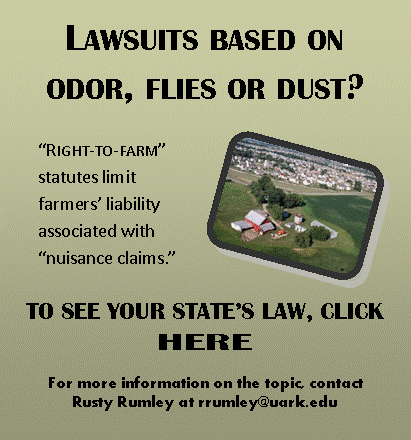
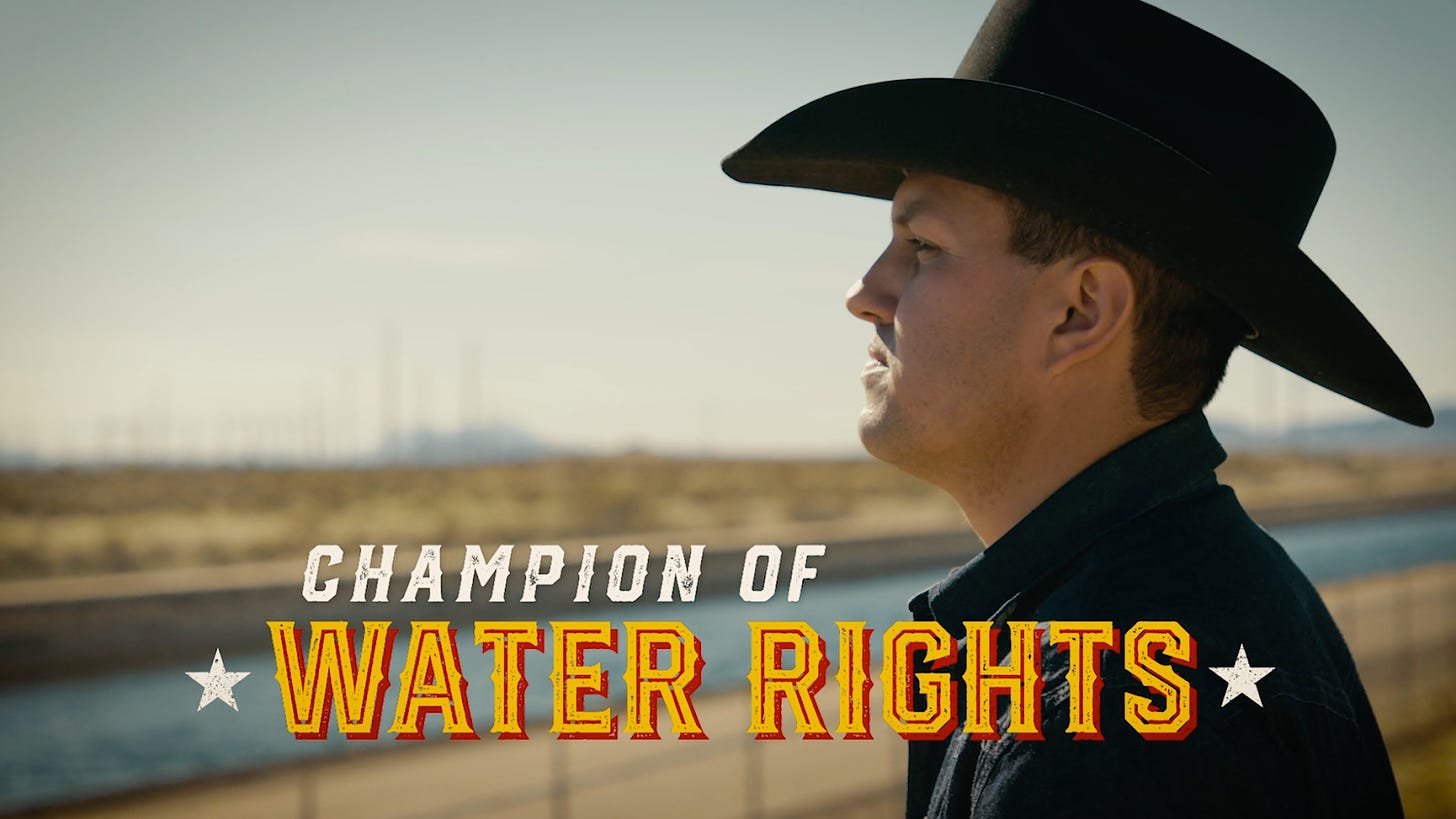
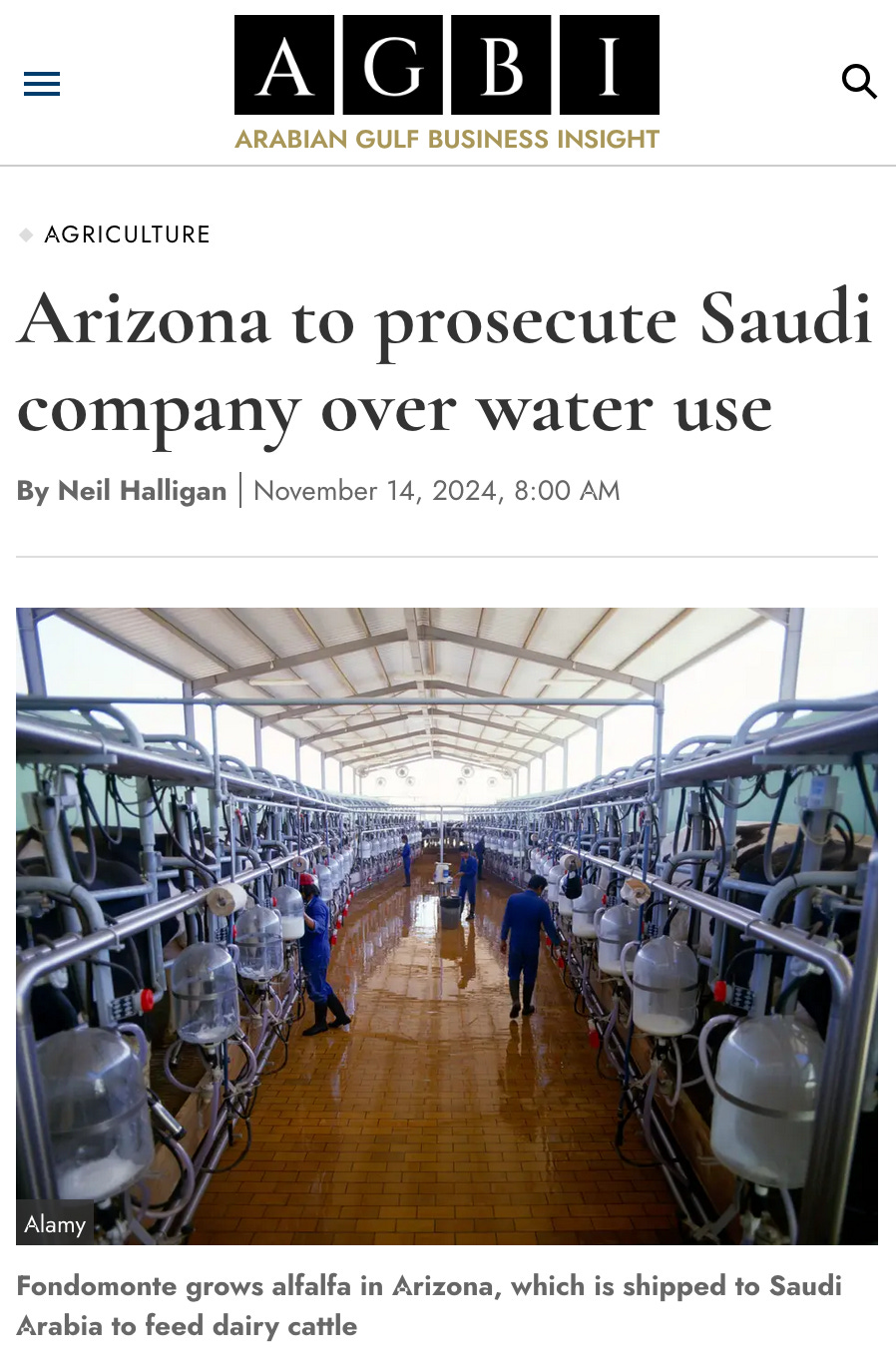

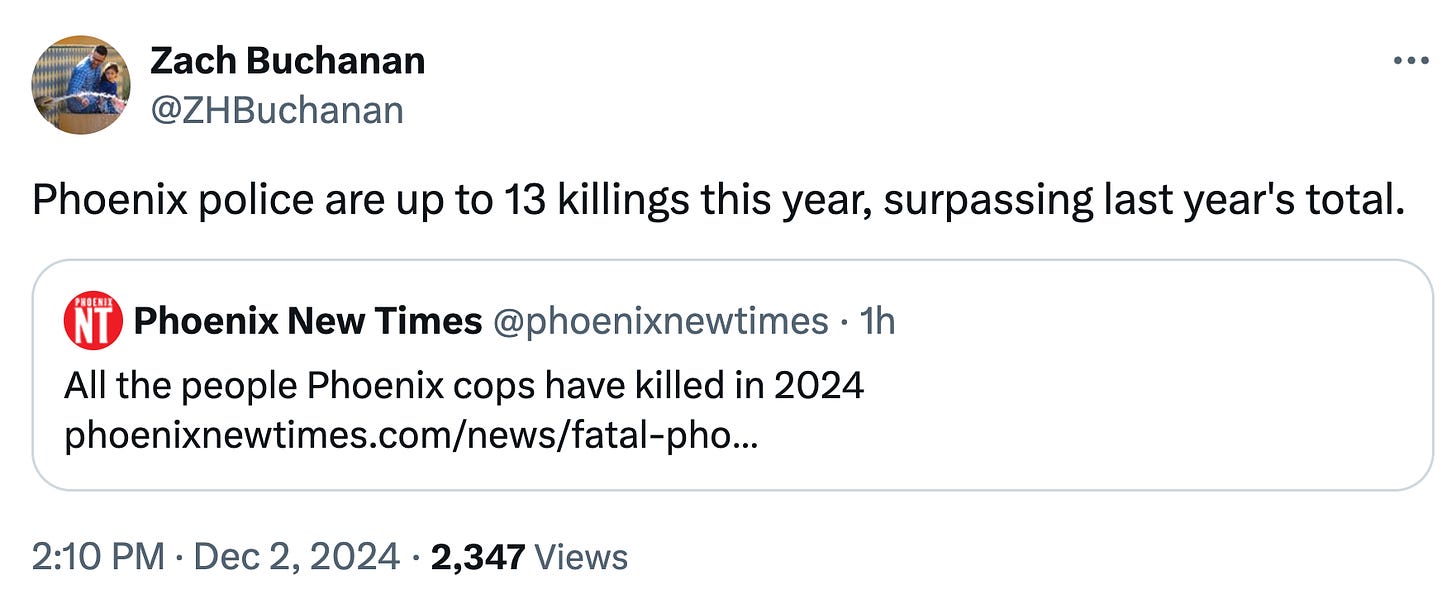
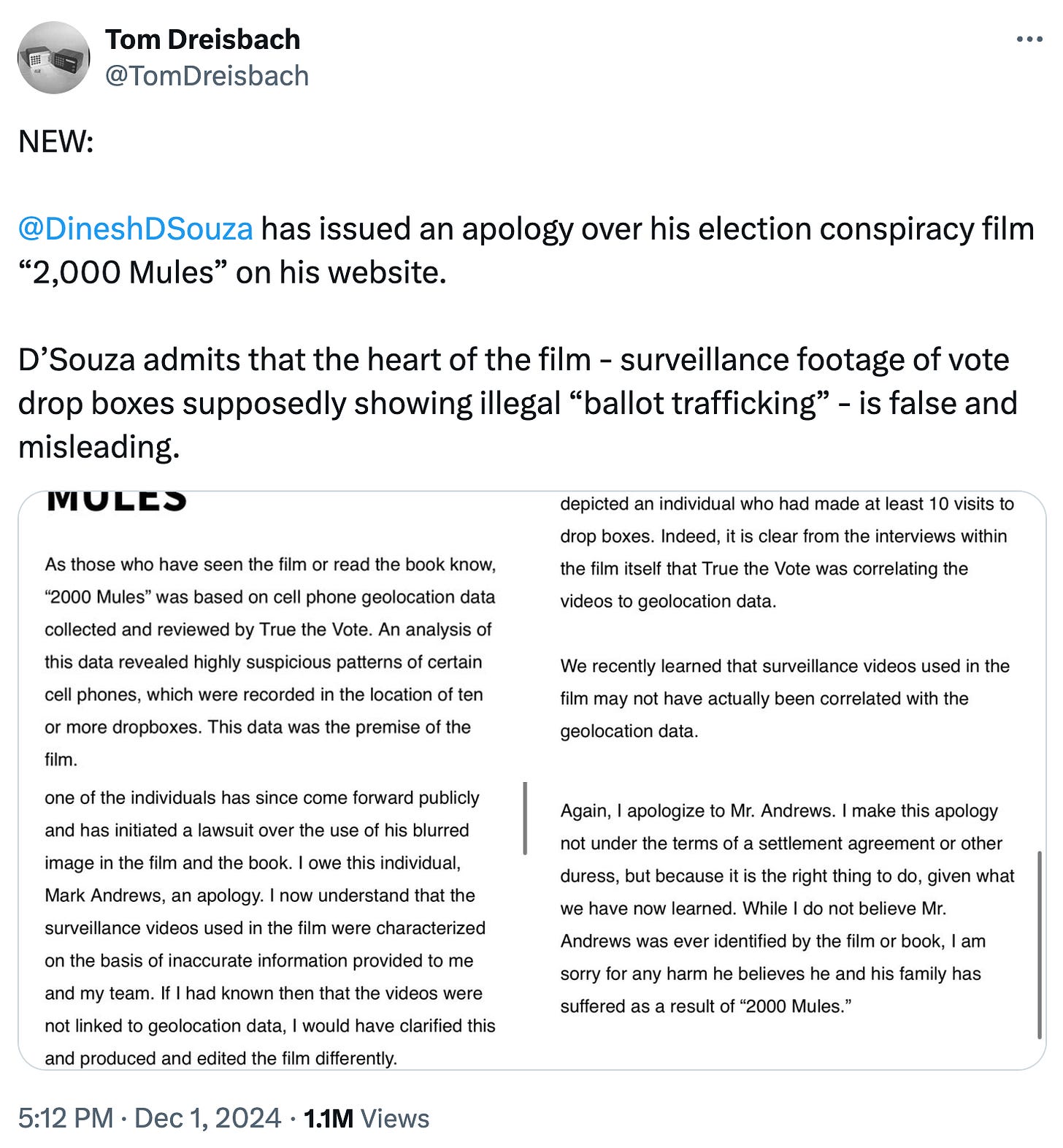

Bravo Kris Mayes.
Liked the water legal analysis. Very in-depth. Great job!